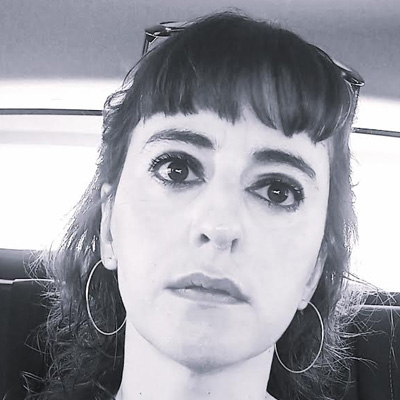
Ana Balona de Oliveira is an art historian and curator. She is Assistant Researcher (FCT/CEEC) at the Institute for Art History of NOVA University of Lisbon (IHA-NOVA), where she co- coordinates the line ‘Transnational Perspectives on Contemporary Art: Identities and Representation’. She is Invited Assistant Professor at FCSH-NOVA, having lectured in several institutions in Portugal and the UK, where she obtained her PhD in History of Modern and Contemporary Art (Courtauld Institute of Art, University of London, 2012). She has published extensively in Portugal and abroad (Third Text, Nka – Journal of Contemporary African Art, African Arts, ARTMargins, etc.). She has curated exhibitions in Lisbon, London, Guimarães and Luanda, with artists such as Ângela Ferreira (Mozambique/South Africa), Edson Chagas (Angola), António Ole (Angola) and Ruy Duarte de Carvalho (Angola), among others.
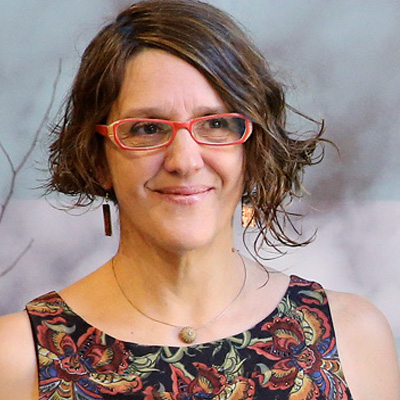
Cultural manager and film programmer. Of Chilean origins, she was born in Madrid and raised in Cuba. She studied Computer Engineering in Havana, Cinematography at EICTV in San António de los Baños and, later, completed a Master's in Audiovisual Distribution and Film Criticism at ECAM, Madrid. She has been an audiovisual professional since 1994. In 2006 she founded DOCMA, the Documentary Cinema Association in Spain, where she directs and coordinates multiple seminars and screenings with internationally renowned figures. In 2012, together with the DOCMA team, she created the 3XDOC / Meeting of Creatives festival, which she continues to direct today. She was co-artistic director of the Documenta Madrid International Film Festival between 2017 and 2019, where she created the Final Cut Professional Film Forum. She is currently part of the programming team at MajorDocs, Creation Documentary Film Festival, Mallorca and the selection committee at EFA, European Film Academy. She works as a consultant for film funds and festival curator, in addition to being part of project evaluation and selection committees. She regularly serves as a jury at film festivals. Andrea started EL MAR FILMES, her own cultural management, event organization and consultancy house. Andrea teaches promotion, distribution and festival strategy classes at film schools and programs such as CIMA, Impulsa and Documentary Masters.
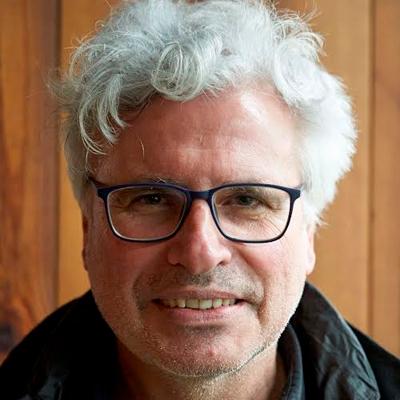
PhD and Graduate in Information Sciences from Complutense University. Full Professor of Audiovisual Communication at the Faculty of Communication Sciences at Rey Juan Carlos University (URJC). Aurélio Paz dos Reis International Prize 2016, awarded by the Escola Superior Artística do Porto (ESAP), Portugal. He is the author of publications in the fields of cinema, documentaries, new technologies and audiovisual literacy. His work revolves around audiovisual language and its narrative forms from fiction narratives, documentaries and transmedia. From this perspective, he carried out several audiovisual projects as a screenwriter and director, among which the following stand out: Senegal. Notes from a trip, 2007; Sunuy Aduna (Our Lives), 2009; 20 anos dando vida aos dias, 2012. The documentary feature film Listening to the Wind (2013) as producer, screenwriter and director was selected for competition at the 2013 Valladolid International Festival; It won the Audience Award for best film at the 2014 CINELOW Festival. In 2013 he embarked as co-producer on the transmedia documentary project La Primavera Rosa (nominated for the 2018 Goya Award with La Primavera Rosa in Mexico). He also served as co-producer on the feature films El Pueblo inventado. Echoes of Cape Verde (Juan Meseguer, 2014) and Ad Ventum (Bárbara Mateos, 2015). Also in the documentary short films: The Superman Suit (Juan Manuel Díaz Lima, 2017), The Children of Errol Flynn (Juan Vicente Castillejo, 2019), The Girl's Wedding ((Juan Vicente Castillejo, 2020), The 30s (not) are the new 20s (Juan Vicente Castillejo, 2023). Director, producer and screenwriter of the short films Juan Brito: Tamia (2019), Espejismos (2022), Ausencias (2023). His latest documentary feature film, José Luis Espinosa, The Spy (2022), won the award for best documentary at the Avanca International Film Festival, Portugal.
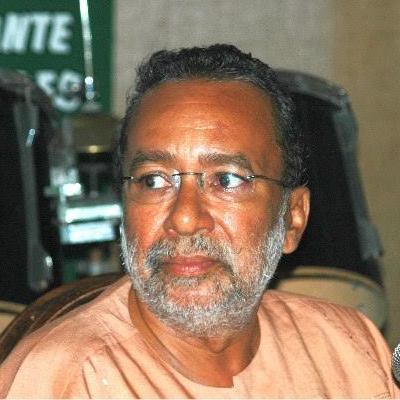
Founding member and vice-president of the Mozambican Association of Filmmakers, created in 2003, Camilo de Sousa was born in Lourenço Marques on May 29, 1953, where he completed his secondary studies. In 1968, he began to become interested in photography, working in Graphic Arts and, later, as a photographic reporter and editor for the daily “O Jornal” published in the then city of Lourenço Marques. In 1972 he took refuge in Belgium, where he obtained political refugee status with the United Nations (UNHCR). In 1973 he left for Tanzania and joined the Mozambique Liberation Front, participating in the fight for Mozambique's independence. After the proclamation of National Independence in 1975, he worked on several social and communication projects in the Province of Cabo Delgado, creating the first Mozambican network of popular information correspondents and taking mobile cinema to all districts and locations in this province. In 1980, he joined the National Cinema Institute, where he worked until 1991 as director, editor, production director, producer and, finally, General Production Manager. In 1992, with other cinema and communication professionals, he created the first independent communication and image production cooperative, Coopimagem. In 2001, he joined Ébano Multimédia, where he has been working as producer and director. He has a hand in hundreds of film productions, as producer, director, director, first assistant. In the cinematographic productions that marked Mozambique, Camilo de Sousa has participated, for example, in the film “The Time of Leopards”, a fiction feature film co- produced by Mozambique and Yugoslavia. His mark is also present in the film “O Vento Sopra do Norte”, a fiction feature film by filmmaker José Cardoso.
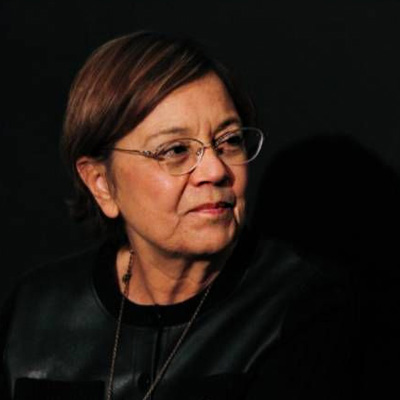
Cecilia is considered to be one of the most transgressive filmmakers of her time. She grew up in the former Spanish colony of Fernando Pó, now Equatorial Guinea, where she began acting and directing school plays. After abandoning her studies in Engineering and later Economic Sciences, she managed to enroll at the Official Cinema School of Madrid, one of the most prominent centers at the time where the New Spanish Cinema was created. Bartolomé graduated in 1969 with Margarita and the Wolf, a school essay that became an almost revolutionary medium-length film at the time. Before this project, the director had already made her first short films within the institution, including Carmen de Carabanchel (1965) or Plan Jack Cero Tres (1967), with a screenplay co-written with Gonzalo Suárez. Years later, in 1978, she directed her first feature film Let’s Go, Bárbara!, a version of the film Alice Doesn’t Live Here Anymore (Martin Scorsese, 1974). This work was considered by critics to be the first feminist film in the history of Spanish cinema, where Bartolomé particularly focused on the liberation of Spanish women. The critical content of her work, where she publicly exposed the difficulties of women in society at the time, provoked censorship of her work by the Franco regime. In 1981 she co-directed with her brother After…, a political documentary divided into two parts (You Can't Be Left Alone and Atado and Bien Atado, respectively), censored, according to Bartolomé, for political reasons. At the end of the 90s she directed Far from Africa (1996), a work again written in collaboration with her brother, where the director from Alicante narrates in an autobiographical way her childhood in the former Spanish colony. In 2005, she created a documentary chapter for the television series Cuéntame Como Foi, entitled Especial Carrero Blanco: the beginning of the end, which she claims to be one of the most interesting projects of her career. Bartolomé received the Women of Cinema award in 2012, awarded by the Gijón International Film Festival. Two years later, she received the Gold Medal for merit in the Fine Arts Academy of Spain. Finally, in 2018, she received the special prize from the Audiovisual Academy of Valencia.
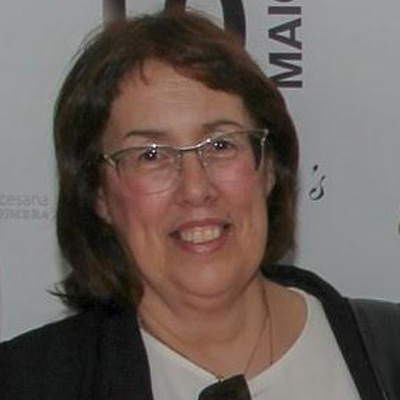
Coordenadora Nacional do Plano Nacional de Cinema, na Direção-Geral da Educação (Lisboa), desde 2014. Doutoramento em Letras - Ramo de Estudos de Cultura, Especialidade Estudos Norte- Americanos - Estudos Fílmicos (Universidade de Lisboa). Mestrado em História de Arte (FCSH- Universidade Nova de Lisboa). Licenciatura em História pela Faculdade de Letras de Lisboa (FLUL – Universidade de Lisboa). Trabalha na Direção-Geral da Educação (DGE) desde 2014. Atividade docente entre 1983 e 2014. Investigadora integrada no Grupo de Investigação, Media e mediações culturais (CEMRI- Universidade Aberta). Jurada nos Concursos do Instituto do Cinema e do Audiovisual (ICA), membro de Júri em projetos de investigação académica de Mestrado e Doutoramento e membro de Júri em diversos Festivais de Cinema. Membro da Academia Portuguesa de Cinema. Integra diversas Comissões Científicas e Comissões de Honra na área do cinema e audiovisual. Coordena a equipa de produção da Coleção de Dossiês Pedagógicos do PNC. Cocoordena o grupo Cinema e Educação na Associação de Investigadores de Imagem em Movimento (AIM). Integra a Comissão Pedagógica da Associação de Professores de História (APH) e a equipa de trabalho do Plano Nacional das Artes. Tem publicado o seu doutoramento, A Cruz, o Gládio e a Espada: representações da História no cinema de Cecil B. DeMille (2015). Coimbra, Imprensa da Universidade de Coimbra.
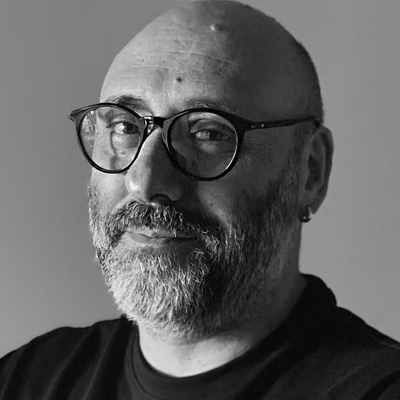
Lecturer and artist-researcher at the interface of performance and visual arts, seeking to represent a figurative space-time, combining sound and visual narratives with unusual places, and fostering audio-visual processes that move between past and present, and between individual and collective memory. He holds a PhD in Art Studies - Arts/Drama and Performance Studies from the University of Coimbra, a Post-Doctorate in Religion Studies from the Portuguese Catholic University and a Post-Doctorate in Sound and Visual Sociology from the University of Porto. He is an Invited Lecturer at the Department of Arts, Design and Humanities of the Polytechnic Institute of Viana do Castelo and an Expert Evaluator at EIT Culture & Creativity, a Knowledge and Innovation Community of the European Institute of Innovation and Technology (EIT). He is a researcher at the Research Institute in Design, Media and Culture (ID+) at the Polytechnic University of Cávado and Ave and at AO NORTE. He is also an affiliated scholar of the Centre for the Study of Storytelling, Experientiality and Memory (SELMA) at the University of Turku (Finland) and an affiliated researcher of the Centre for Global Knowledge Studies (gloknos) at the University of Cambridge (United Kingdom). He is the author of the books “The Performativity of Memory in Religious Places” (UCP Editora, 2024) and “Notebook of Memory Representations” (Pensamento Voador, 2022), and the editor of the book “Performativity and the Representation of Memory: Resignification, Appropriation, and Embodiment” (IGI Global, 2024). He is also the author of several academic articles on theatre and performance studies, research methodologies through artistic practice, memory studies, sociology of art, art and cultural studies, religious studies, and art and technology. He has presented his work in museums, concert halls, public spaces and events in Portugal, Austria, Spain, Finland, Brazil, Mexico and South Korea.
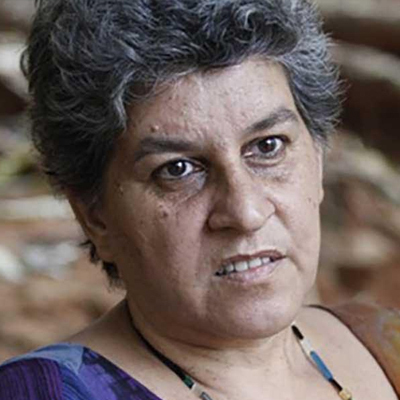
Isabel Noronha is the daughter of a Goan father and a Mozambican mother. Graduated in Clinical Psychology and Counseling from the Instituto Superior Politécnico Universitário (ISPU) and Master in Mental Health and Social Clinic from the University of León, in Spain, she studied doctorate courses in Anthropology at Unicamp. She is recognized as a fundamental name in Mozambican cinema, having joined the National Cinema Institute in 1984. He was a Founding Member of the first Independent Video Cooperative (Coopimagem) and the Mozambican Association of Filmmakers. He directed several films, including the beautiful Ngwenya, the crocodile, about the painter Malagantana, distinguished by the Milan Festival as the best documentary in Africa, Asia and Latin America. Since 2008, with Vivian Altman (animation director), he has been producing films that mix documentary and animation, which makes it possible to approach problematic themes, without showing the characters' faces.
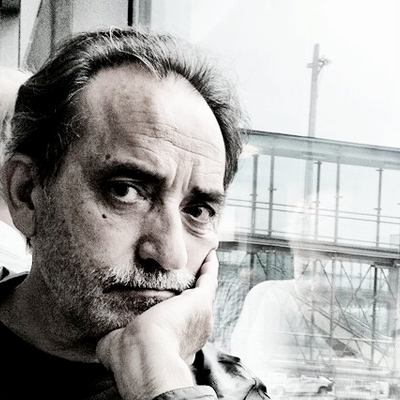
Graduate in Applied Mathematics from the University of Porto, worked as a computer technician at Caixa Geral de Depósitos. He has been dedicated to photography since adolescence, with some of his works published in books and magazines. Participated in collective exhibitions and held individual exhibitions and in co-authorship with Manuela Matos Monteiro. Among the various exhibitions produced are "Carnival in Venice", "The Harvest", "Crystalline light", "Istanbul - Roadmap of melancholy", "Tropicana / Matanzas", "South of Dakar" Istanbul and Lisbon - Roadmaps of melancholy ". Among other interventions, we should also mention his work in co-authorship on the river Douro: official photograph of the 250th anniversary of the demarcated region, an exhibition about the region in Parliament (" the Douro on the Tagus” with Siza Vieira, José Rodrigues and Gracinda Candeias), in the European Parliament / Brussels, Paris, Bordeaux, Maputo and Beira (Mozambique), in various areas of the Douro and Porto. Since October 2013, with Manuela Matos Monteiro, João has been running the galleries ESPAÇO MIRA and MIRA FORUM, in Campanhã, Porto.
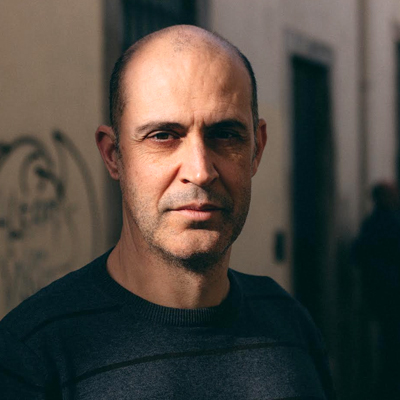
José Filipe Costa has written and directed several short films and documentaries, including Prazer, Camaradas! (2019), Linha Vermelha (2011), Entre Muros (2002) and Senhorinha (1999). His films have been presented at film festivals such as Locarno Film Festival, BFI London Film Festival, HotDocs, Cinéma du Réel, Viennale, PlanetaDoc, DocLisboa, IndieLisboa, among others, and have been shown on various television channels such as RTP, Futura-Brasil and ZDF-Arte and on numerous streaming platforms. He has written scripts for films by directors such as Pedro Pinho, Filipa Reis and João Miller (Légua, 2023). He is the author of the book O cinema ao poder! (2002/2014). He has lectured at several universities, including IADE, ESAD, Universidade Lusófona (Master DocNomads, Documentary Film Directing Erasmus Mundus). He was a visiting professor at the Universida do Estado do Rio de Janeiro. He holds a PhD from the Royal College of Art, London.
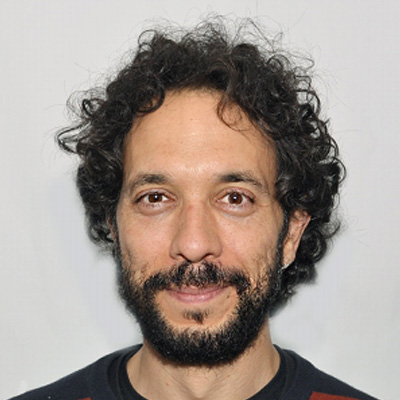
José Luis Alcaine Bartolomé begins his adventures in the sound world. His main objective was always to demonstrate the importance of sound narrative within audiovisual, providing and demanding for each of his projects a personality consistent with the cinematographic language used. It is not just about exploring the technical side of sound, but also its capacity as a language for transmitting sensations, ideas and emotions beyond the subconscious. He always wanted to investigate and get to know everything a story wants to convey, be it a film script, a song, a play, to be able to identify and fully engage with it by designing and creating its own auditory language and allowing solid creativity to contribute with its enormous potential for the development of work. Sound designer and editor of fiction and documentary feature films, theatrical and musical sound producer. He founded, together with other professionals with years of experience in the sector, the sound brand Blacktone Studio, one of the most important sound studios in Madrid. José is currently working on the digitization of the sound archive and creation of the sound library for Cecilia Bartolomé's films.
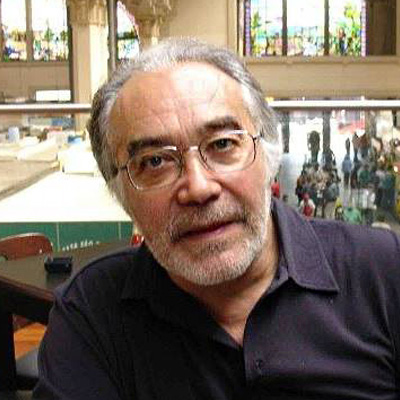
Graduated in Philosophy from the University of Porto (1976), PhD in Cine Vídeo from the Escola Superior Artística do Porto (1989), master’s degree in Multimedia Educational Communication from the Open University of Portugal (1993) and doctorate in Social Sciences - Anthropology from the University Open of Portugal (1998). Former professor at the Open University of Portugal. He has vast experience in the field of Anthropology, with an emphasis on Visual Anthropology, working mainly on the following themes: visual anthropology, digital anthropology, cinema, research methods in anthropology, interculturality and Afro-Atlantic culture. Fieldwork undertaken in Portugal, Cape Verde, Brazil, Argentina and Cuba. He coordinated the International Network of Scientific Cooperation Images of Culture / Image Culture. Visiting professor at Mackenzie University (Education, Art and History of Culture), UECE, UCDJB, University of Murcia - Spain (ERASMUS) and University of Savoie - France, University of S. Paulo. Researcher at GI - Media and cultural mediations - CEMRI: Open University. Former Visiting professor at UFG - Faculty of Visual Arts 2016-2019. Currently preparing a work project - Teaching, Research and Extension at the Federal University of Maranhão. José coordinates the Group of Studies in Cinema and Digital Narratives of AO NORTE - Association of Animation and Audiovisual Production.
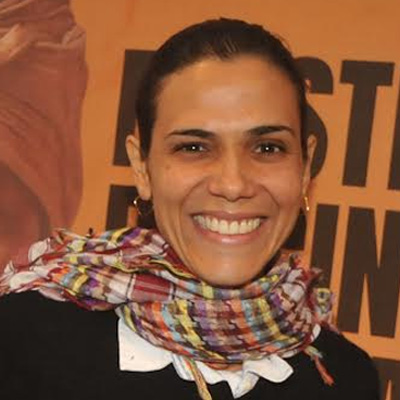
Jusciele Oliveira graduated in Vernacular Literature (UFBA, 2006), with a specialization in Teaching Methodology of Afro-Brazilian History and Culture and Higher Education Teaching (2010). Master in Literature and Culture from the Federal University of Bahia (UFBA, 2013), with research on the film Nha fala (2002) by Flora Gomes. PhD in Communication, Culture and Arts from the Center for Research in Arts and Communication at the University of Algarve (UAlg), in Portugal (2018), with research from CAPES/Brazil, investigating the fictional work of filmmaker Flora Gomes. She co-edited the e-book Contemporary African Cinemas: Critical Approaches (Sesc, 2020). Currently, she is a collaborating researcher at the Center for Research in Arts and Communication (CIAC / UAlg) and a researcher at the Film Analysis Laboratory (Facom / UFBA), where she develops research on cinematographic genres in African cinemas, notably musicals and comedies. She has experience in African cultures and cinemas, topics on which she has published in several journals in Brazil and abroad.
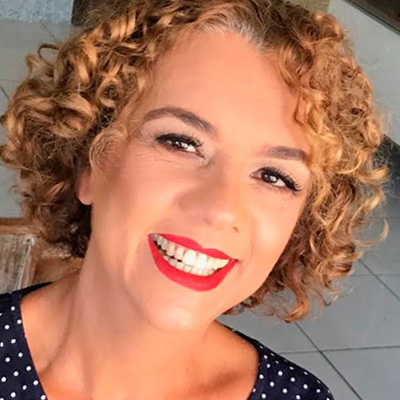
Lisabete graduated in Business Administration (1988), Masters in Social Anthropology from the Federal University of Santa Catarina (1992) and PhD in Anthropology from the Universidad Nacional Autónoma of México (2000). Post-doctorate in Anthropology from UFSC (2008) and Post-doctorate in Anthropology from the Universidad Autonoma of Barcelona. She is currently a Full Professor in the Department of Anthropology at the Federal University of Rio Grande do Norte. Coordinator of NAVIS Visual Anthropology Center, Research Directory/. She directed the following films: No Mato Das Mangabeiras, Seu Pernambuco, Mozambican Cinema in Motion, Sila, Mulher Cangaceira, Master Zorro, among others. Member of the Commission for the Preparation and Evaluation of the Audiovisual Production Classification Roadmap/CAPES. Member of the ANPOCS Image and Sound Commission in the 2001- 2002 administrations and of the ABA Visual Anthropology GT (2009-2010) and (2011- 2012). She participated in the Mais Cultura Program (2015-2019) and the preparation of the UFRN Culture Plan (2015-2019). President of the CAV ABA Visual Anthropology Committee 2019/2020). Participation in the AMLAT NETWORK (Thematic Network for Scientific Cooperation Communication, Citizenship, Education and Integration in Latin America – PROSUL. MCT/CNPq N 11/2008). Published work: Praça XV space and sociability; Anthropology and Image; Cities and their Images. Organized Dossier on Cinema (BAGOAS Magazine). She has experience in the field of Anthropology, with an emphasis on Urban and Audiovisual Anthropology, working mainly on the following themes: cities, spaces, memories, narratives, cinema, African cinema and the use of image.
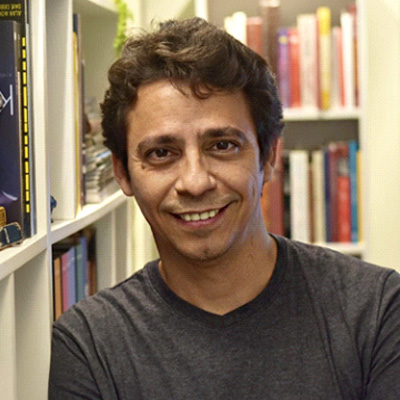
Luiz Joaquim (1970) é autor dos livros Celso Marconi: o senhor do tempo (2020, CEPE) e Cinema brasileiro nos jornais (2018, Ed. Massangana), além de artigos sobre cinema em diversas publicações no Brasil e no exterior. É editor do site cinemaescrito.com, criado em 2007. Dirigiu os curtas-metragens Eiffel (2008) e O homem dela (2010). É jornalista, mestre em comunicação e atuou como repórter e crítico de cinema no Jornal do Commercio (Recife, 1997-2001) e na Folha de Pernambuco (2004-2016), tendo ainda chefiado o Cinema da Fundação Joaquim Nabuco entre 2001 e 2017 além do bacharelado em Cinema e Audiovisual da Uniaeso (2017-2021), onde atuou até 2024. Foi vice-presidente da Abraccine (2019-2021), e esteve em 2021 como chefe de Audiovisual, Arte e Tecnologia da Prefeitura do Recife; atuando ainda, em 2022, como gestor do Museu da Imagem e do Som de Pernambuco (Mispe) e curador do Cinema São Luiz (Recife). Desde maio de 2023 responde pela coordenação do Cinema da Fundação Joaquim Nabuco e pela Cinemateca Pernambucana Jota Soares, da Fundaj (Recife, Brasil).
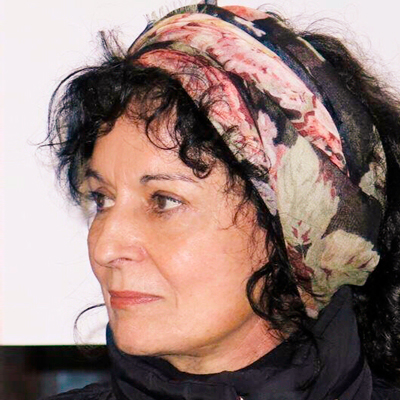
Manuela Matos Monteiro tem formação em Filosofia e Psicologia sendo co-autora de livros de Psicossociologia, Psicologia e autora de livros de Pedagogia, Metodologia de Projeto entre outros (Porto Editora). Dirigiu durante anos a revista 2:PONTOS e foi coordenadora do site NetProf. Dedica-se à fotografia há vários anos, participando com os seus trabalhos em exposições colectivas e individuais. O seu trabalho tem sido reconhecido através de prémios obtidos em diversos concursos de fotografia, de que se destaca o 1º prémio no concurso internacional “La femme et la vigne”. Tem trabalhos publicados em livros e revistas. De entre as diferentes intervenções pode-se destacar o trabalho em coautoria.
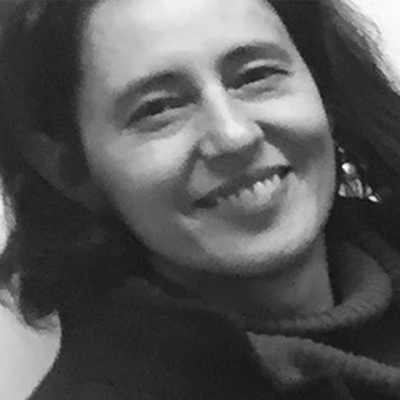
Professor in the 1st and 2nd Cycles in Cinema courses, at UBI-University of Beira Interior. Member of the editorial board of journals in Portugal and Brazil, as well as member of the scientific committee in several events. Member of the Advisory Board of the AIM-Association of Moving Image Investigators, where she is a coordinating member of the Working Group “Filmmakers’ Theory”. Co-editor of DOC On-line Magazine (www.doc.ubi.pt) and researcher at Labcom-Comunicação e Artes.
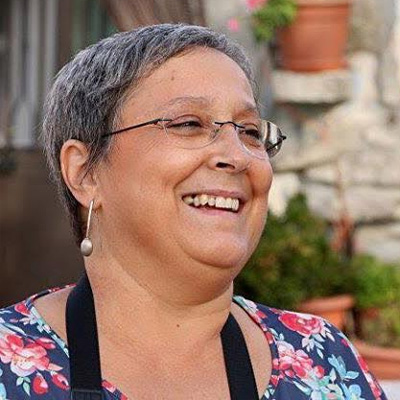
Graduated in Geography from FLUP, she has had photography as a form of expression since a very early age. His formal education in photography began at the Instituto Português de Fotografia, 2006. In 2018, he completed his Master's in Artistic Photography at the Instituto Português de Comunicação e Imagem (IPCI), in Porto. He has exhibited his work since 2000, in individual and group exhibitions throughout Portugal. Highlights the collective exhibition “Deserts and Desertification”, at the Belém Cultural Center and the individual exhibition that was part of the Gold Congress, in Póvoa de Lanhoso, both in 2007. In 2015 he was present at the Bienal da Maia, at Fórum Maia, at work “Travel Places—Momento II”, a group exhibition. Since 2014, he has participated in several group exhibitions held at Galeria Mira Fórum, in Porto. He held his first solo exhibition abroad in May 2009, in Luxembourg, at the invitation of Instituto Camões, with the theme “Dreams in Ponta de Pé”. He received an Honorable Mention at the MIFA Photo Awards, in 2015, with the work “Blowin’in the wind”, which allowed him to be in a group exhibition at FotoLoft Gallery, in Moscow. She was a finalist in the 2015, 2016 and 2017 Mira Mobil Awards, and in 2018 and 2019 for the Mira Mobil B&W Awards. Both competitions were organized by Mira Fórum, in Porto. His work has been published in books and specialized magazines, and his works are in private collections.
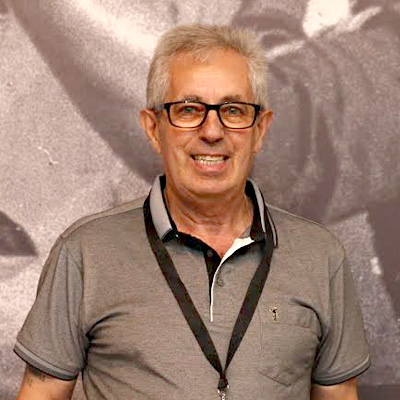
Rui Táboas was born in 1951 Peso, in Melgaço. He emigrated to France in 1966, where he worked in restoration. In October 1973 he returned to Portugal to do military service and became a soldier in Braga. He specialized in the 1st Infantry Regiment, and it was from there that he found himself fighting for freedom in the Carnation Revolution, in Largo do Carmo, in Lisbon.
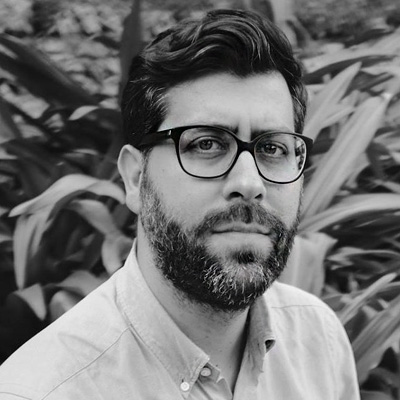
Tiago Baptista is director of the National Archive of Moving Images, the conservation center of the Cinemateca Portuguesa-Museum of Cinema. He has a PhD in Film and Screen Media from the University of London (Birkbeck College) and is an integrated researcher at the Institute of Contemporary History-NOVA FCSH. He will present the theme Revolution, Archive and History - Panorama on the different types of images about the 1974 Revolution existing in the Cinemateca Portuguesa archive: amateur films, professional productions, unfinished raw films. History and perspectives of appropriation cinema (of archive images). Critical reuse of archive images, or cinema as a historian of the Revolution.